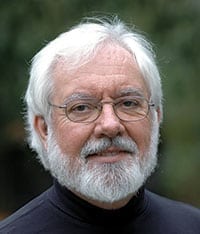Be first or be different
July 22, 2015By Ken Gasque
Being first with a good idea is really difficult and may not happen but once in your lifetime, if it happens then. Apple’s iPod, Coca-Cola, WD-40, Dixie Cups, Post-it Notes, Duct Tape, and Google are just a few great ideas that were first to the market.
But being different, repositioning or rebranding can be just as effective as being the first one to bring a great idea to market. Think about Starbucks. Coffee has been served in this country since the late seventeenth century. But it was the Boston Tea Party that repositioned it as the ‘patriotic’ caffeine drink to drink. However, it took another 200 years before Starbucks rebranded generic coffee and the coffee house. Starbucks was different in taste, in the environment where it was served and its price. Starbucks was perceived as the best by the way it was presented and the price it asked. Starbucks used imagination in selecting a name. Most committees would have tossed out the possibility of a name like Starbucks because it didn’t ‘say’ coffee and it presented an image of something or someone flamboyant. They would have insisted on something like Maxwell House Coffee or Taster’s Choice Coffee. Being different involves risks and panache and takes courage.
Shoes have been around for a long time too. It is doubtful anyone can accurately name the first company to manufacture shoes. So being first is out of the question; but being different has enabled a handful of manufacturers to produce brands that are sought after worldwide and command top prices. Louis Vuitton makes a pair of shoes that cost $10,000. Christian Louboutin has a trademarked red sole that is so sought after that the company has a whole division whose purpose is finding knock-offs and shutting them down. Manolo Blahnik began in the 70’s and pioneered stiletto heels that now sell for thousands of dollars for a single pair. Walter Steiger uses unique curved designs to differentiate and command $3,000 for a single pair of his shoes. Even though the field is crowded designers and manufacturers still find a way to be different and brand their products.
We buy with our eyes
Design is one of the fastest and easiest ways to brand or rebrand your product or service. But design is not the brand.
A brand is a paradox. A brand isn’t your logo—a brand is perceived as your logo. Colors do not make your brand—colors are part of your brand. Graphics and design are not your brand—your brand is an experience created by graphics and design. Your mission statement isn’t your brand—your brand evolves from your mission statement. A brand is an experience of all these elements and more. A brand is a promise that you make to your customers and usually a unique design that helps communicate, “I am something different.”
Branding sends a message to your customer that your promise delivered will make a difference in their lives for the better. What is your promise? You have a brand only if you deliver the promise every time your customers touch your service. Your customer has to experience your brand over and over and over again for it to become reality. It helps if your ‘promise’ is a bold promise, something that the customer understands, values and remembers. Rate your brand goo.gl/mcU6cN
For more information on developing a brand visit goo.gl/kshbNA
About Ken Gasque
Ken Gasque is a brand image-maker, marketing planner and designer. Ken works with small companies and Fortune 500 companies who recognize the need to differentiate their products and services to stand out in a cluttered market. Ken is a highly visual, outside-the-box-thinker on advertising, branding and marketing—his work reflects his belief that “We buy with our eyes.” Ken writes and lectures on brands, design, images and brand development. www.gasque.com
.
.




















